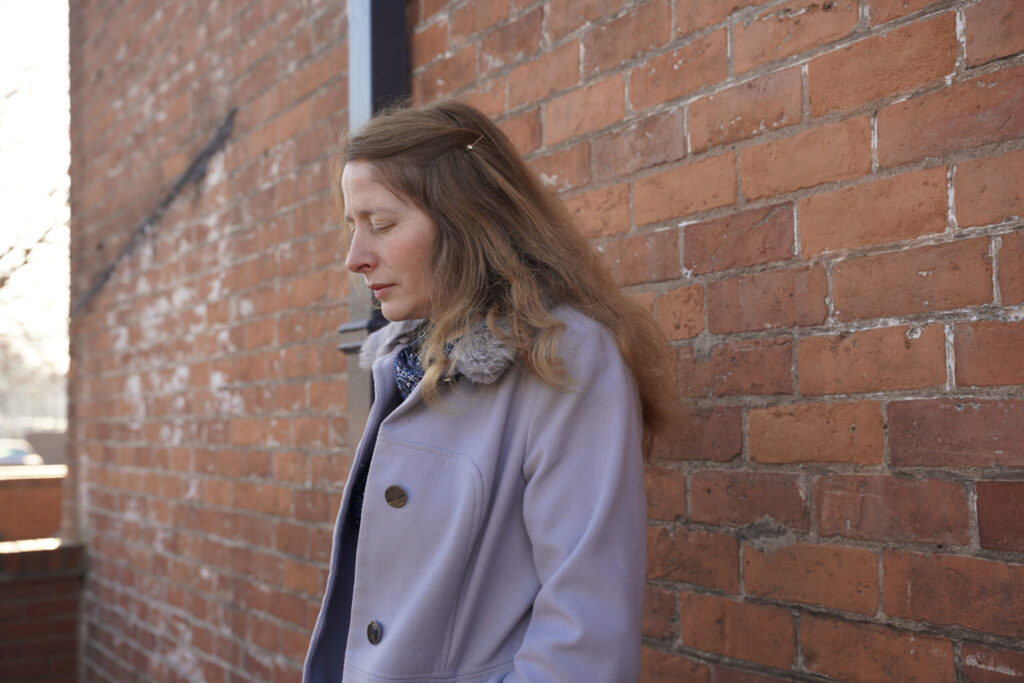- Public letter to PM pleads: “act urgently to ensure that thought is never buffered, censored or criminalised.”
- Army veteran convicted for silently praying near abortion facility last week
- Government set to roll out censorial “buffer zones” around every abortion facility from 31st October

LONDON (25th October 2024) – 57,900 members of the public have signed an open letter to Keir Starmer in light of an army veteran being prosecuted for his silent prayers.
The letter, addressed to the UK Prime Minister, reads: “Freedom of thought is our most basic and precious of rights – and has long been recognised in British law and every major human rights document from the Universal Declaration of Human Rights onwards.”
The letter highlights the plight of Isabel Vaughan-Spruce, who received a £13,000 payout from West Midlands Police after being unlawfully arrested twice for imperceptibly praying in her head in a Birmingham “buffer zone”.
"A failure to protect thought and peaceful speech anywhere, creates a threat to these rights everywhere."
- Jeremiah Igunnubole, legal counsel for ADF UK
Also noted is the case of Livia Tossici-Bolt, who will face trial in March 2025 for inviting consensual conversation in the buffer zone by holding a sign reading “Here to talk, if you want”.
Father Sean Gough is also highlighted, having been fully acquitted of all charges after facing trial for praying while holding a sign near a Birmingham abortion facility reading “praying for freedom of speech”, and having a small pro-life sticker on his parked car inside the buffer zone.
The letter further references army veteran Adam-Smith Connor, who was found guilty last week for praying silently in his head near an abortion facility in the first “thoughtcrime” conviction of modern British history. Bournemouth, Christchurch & Poole Council spent over £100,000 of public funds prosecuting the father of two, hiring a Kings Council, despite being on the brink of bankruptcy.
A slippery slope of censorship
Christian legal charity ADF UK supported the defence of all four individuals prosecuted on the basis of their silent prayers in abortion “buffer zone” areas.
ADF UK legal counsel Jeremiah Igunnubole explained that the different outcomes in each case represent a “profound and troubling lack of clarity in the law, and an undue subjectivity allowing individual officers and local authorities to determine whether silent prayer can be considered a crime on any given day.”
You are currently viewing a placeholder content from YouTube. To access the actual content, click the button below. Please note that doing so will share data with third-party providers.
More InformationAlluding to recent fears regarding “two-tier policing” in the UK, where those with conservative viewpoints are disproportionately censored and punished for voicing their opinions, the letter continues:
“The slippery slope is clear; if the criminal law requires us to refrain from ‘offensive’ thoughts anywhere, there is simply no logical endpoint. Today, it’s pro-life views that offend progressive social orthodoxies; tomorrow, it could be gender-critical views and gender-critical buffer zones. A genuinely democratic society must champion diversity of thought and the free and frank exchange of views.”
Silent prayer under threat of criminalisation
Vaughan-Spruce, Smith-Connor, Gough and Tossici-Bolt were all charged for allegedly breaching a “buffer zone”, implemented by five local council authorities via a “Public Spaces Protection Order”, which bans acts of “approval or disapproval” of abortion – but have been interpreted by officers to even include thoughts inside someone’s mind.
The UK government are set to roll out “buffer zone” legislation across the country from 31st October, making it a crime to “influence” anybody’s “decision to access…abortion services” within 150m of an abortion facility.
Free speech campaigners have raised concerns about the loose wording of this legislation, which could potentially be applied to criminalise friends and family who offer advice, or engage in consensual conversations about abortion, near the facility.
Commenting on the upcoming enforcement of national buffer zones, Jeremiah Igunnubole said:
“We all influence each other’s decisions all the time – be it through the advice of a parent, the concern of a friend, or the information made available through a charitable volunteer. The ability to peacefully exchange views is the lifeblood of democratic society.
“Yet the Public Order Act is written so vaguely that these everyday, peaceful, caring conversations could be made illegal on certain streets of England when it comes to discussing abortion. The lack of clarity in the law could result in many more citizens like Adam being interrogated or even charged for simply directing silent thoughts towards God.
“The right to hold a consensual conversation, or engage in silent prayer, constitute the most basic of human rights. They are protected robustly by international legal provisions relating to freedom of thought and speech.
“This is a watershed moment for British freedoms, and one the public must not take lightly. A failure to protect thought and peaceful speech anywhere creates a threat to these rights everywhere. Buffer zones or otherwise, we should uncompromisingly safeguard the rights on which our democracy is based.”
To read the public letter in full, click here.
Images for free use in print or online in relation to this story only
Pictured: ADF UK Legal Counsel Jeremiah Igunnubole with individuals prosecuted for their silent prayers: Adam Smith-Connor; Isabel Vaughan-Spruce, Livia Tossici-Bolt, Fr. Sean Gough


